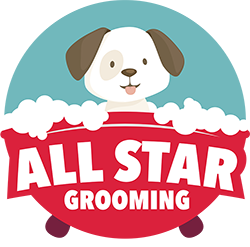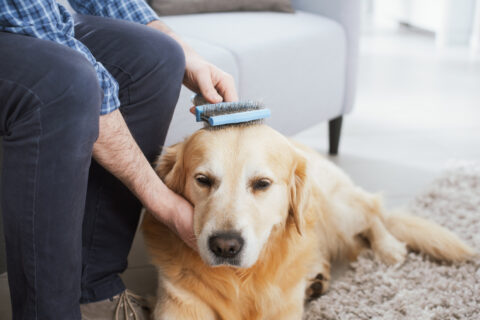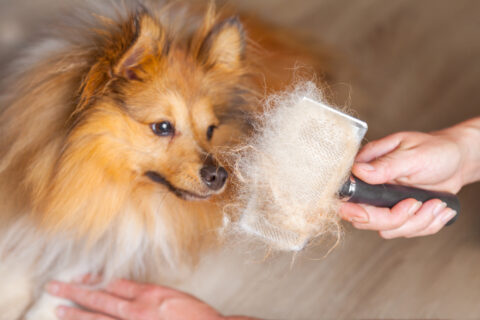Dogs Love Food! but Not All Foods Love Dogs
August is full of many incredible holidays that celebrate food! These include National Watermelon Day (August 3), National Chocolate Chip Cookie Day (August 4), National Peach Pie Day (August 24), National Toasted Marshmallow Day (August 30), and many more! There are so many great treats and snacks to celebrate eating in this hot summer month.
Unfortunately for our pets, many foods can be harmful to dogs or are not recommended for them to consume. Many people who have dogs enjoy sharing their food and meals with their pets. However, it is important as a dog owner to be aware of safe and unsafe substances that our dogs should eat or avoid eating.
Foods That Dogs Can Eat
Coconut – Although this is not a common food to give pets, this tropical fruit can help dogs with bad breath and skin conditions such as flea allergies, itchy skin, and hot spots. Coconut contains a fatty acid called lauric which can strengthen immune systems to help fight off viruses. Coconut milk and coconut oil are safe to consume as well.
Peanut Butter – Giving dogs peanut butter to amuse themselves as they lick at it for a while isn’t the only reason to feed them this snack. Peanut butter is full of protein, heart-healthy fats, Vitamin B, Vitamin E, and niacin. If possible, try to feed dogs healthier options of peanut butter with less sugar and unsalted peanuts.
Cheese – Although some dogs can be lactose-intolerant, cheese is a great snack option for dogs when given in small amounts. Cheese is high in calcium and protein. It is fairly bland which is good for dogs and makes it easy for them to digest.
Carrots – Rather than giving your dog a store-bought treat, try giving them a fresh carrot. Carrots are high in fiber and Vitamin A. They are low in calories and the large carrots are good for dog’s teeth to chew on.
Foods That Dogs Should Avoid
Nuts – Walnuts, pecans, and macadamia nuts are all toxic to dogs. They can cause vomiting, inability to walk, increased body heat, drowsiness, and they negatively impact the nervous system. NEVER feed your dogs these nuts. While all nuts may not be toxic for dogs such as almonds, they can still easily get stuck in a dog’s throat or damage their esophagus. Some of the only nuts that are okay for dogs to eat are cashews and peanuts.
Cinnamon – Although cinnamon is not toxic to dogs, it does cause several negative side effects. It can lead to diarrhea, vomiting, staggering heart rate, and liver disease. Cinnamon can irritate the inside of dog’s mouths causing them to feel uncomfortable and sick. When inhaling the powder form of cinnamon, causes coughing, choking, and difficulty breathing.
Chocolate – This is probably one of the best-known foods to avoid giving to dogs. Chocolate, especially dark chocolates, is very toxic for dogs and carries substances that can stop a dog’s metabolic process. Just consuming small amounts of chocolate can cause diarrhea and vomiting. Large amounts can cause seizures, irregular heart functions, and possibly death. If your dog consumes chocolate, contact a veterinarian immediately.
Garlic – Any foods part of the Allium family such as garlic, onions, chives, and leeks are all toxic for dogs. Garlic can cause staggering heart rates, pale gums, and weakness. These symptoms may not appear until several days after eating these foods, so make sure to monitor your dog if you have noticed they’ve consumed some.
Make sure to be aware of what foods your dog is consuming and talk to a veterinarian if they eat any toxic food. To learn more about foods that are good or bad for dogs, visit the American Kennel Club for more information. And remember, to most safe food for your dog to eat is… dog food!


